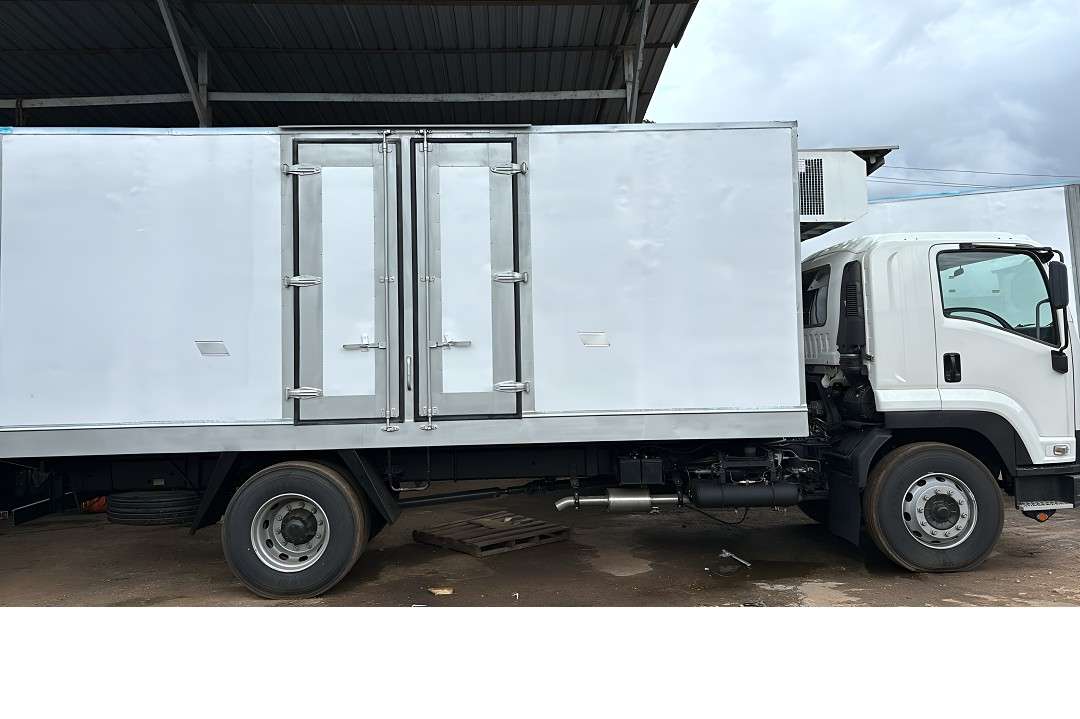A new pilot initiative aimed at modernizing Nigeria’s cold chain logistics is deploying advanced Phase Change Material (PCM) technology to enhance the efficiency and sustainability of refrigerated transport. Launched under the IFC TechEmerge Sustainable Cooling Innovation program, the effort is being implemented in partnership with SPAR (a division of the Artee Group) and local logistics provider IMI.
The pilot involves a small fleet of four PCM-equipped trucks: two 14-footers for transporting chilled items and two 18-foot dual-compartment trucks that can carry both frozen and chilled goods. These vehicles are fitted with thermoTab active systems that use PCM to maintain precise temperature control. The systems charge for 6–8 hours at the warehouse and provide cooling for up to 12 hours during transit—making them suitable for both urban and longer-distance deliveries.
Cold chain logistics plays a critical role in ensuring perishable goods arrive fresh and safe. However, global inefficiencies in this sector contribute significantly to food spoilage, with an estimated $1.2 trillion in food waste annually. By integrating PCM systems into the delivery fleet, the program aims to reduce spoilage, increase energy efficiency, and support environmental goals.
PCM (Phase Change Material) integration significantly reduces reliance on diesel and improves fuel efficiency, leading to a notable decrease in greenhouse gas emissions. This advancement aligns with global sustainability goals and supports ongoing climate action initiatives by promoting greener transport solutions.
By maintaining stable temperatures throughout the cold chain, PCM technology helps reduce fuel consumption and minimizes equipment wear and tear. This translates into lower operational and maintenance costs—especially critical in regions like Nigeria, where efficient, reliable logistics play a vital role in ensuring food security and supporting economic growth.
The innovative dual-chamber design of PCM-equipped trucks enables the simultaneous transportation of various perishable goods at different temperature settings. This versatility enhances logistical efficiency, allowing operators to serve a wider range of needs while improving overall service delivery.
The pilot serves as a promising example of how new technology can transform Nigeria’s temperature-controlled transport sector. As demand for fresh, high-quality food increases, innovations like PCM-enabled cooling are expected to play a vital role in improving logistics, reducing food loss, and minimizing the environmental footprint of supply chains.
Founded in 1994, Pluss Advanced Technologies began by developing specialty polymers and entered the field of Phase Change Materials in 2007. Backed by Tata Capital Innovations Fund since 2012, Pluss has created and commercialized unique temperature control solutions for industries including refrigeration, cold storage, healthcare, and HVAC.
Today, Pluss operates globally, with a subsidiary in the Netherlands. It has received multiple recognitions, including two National Technology Day awards from the Government of India (2017, 2021), and the CII Innovation Award (2014, 2017). It was also honored with the MIT Innovators Under 35 Award in both 2016 and 2017. Since 2021, the company has been a subsidiary of Carborundum Universal Limited (CUMI), part of the Murugappa Group.







